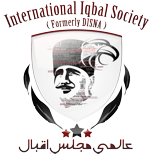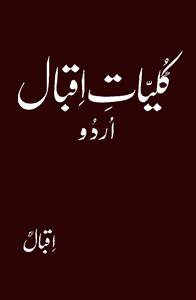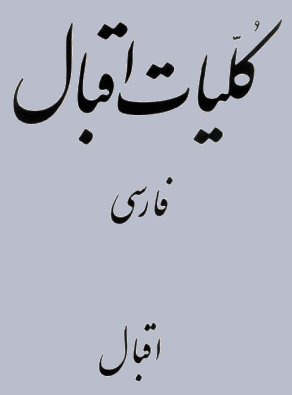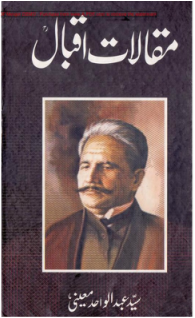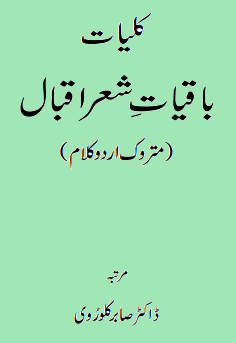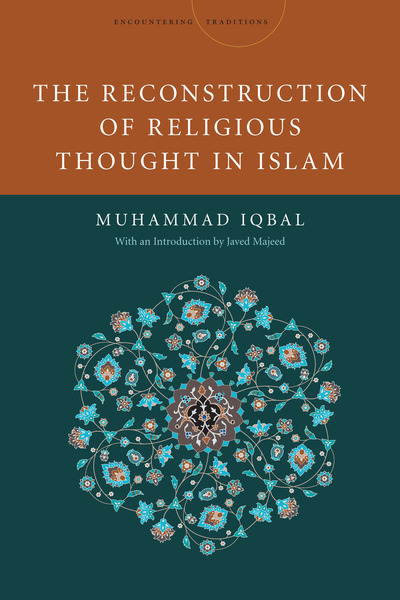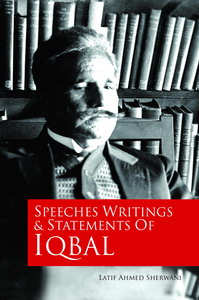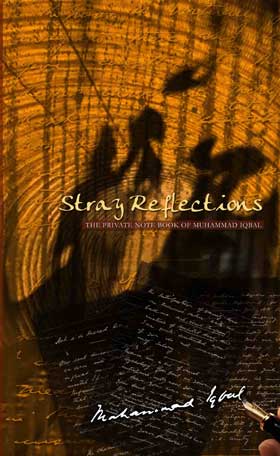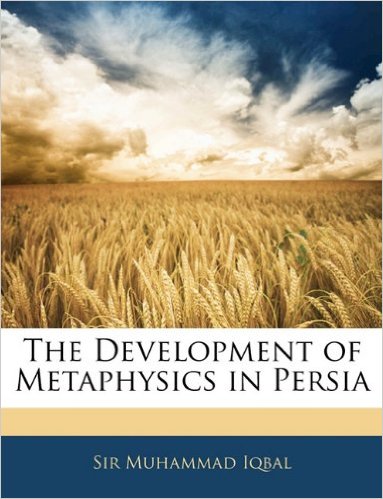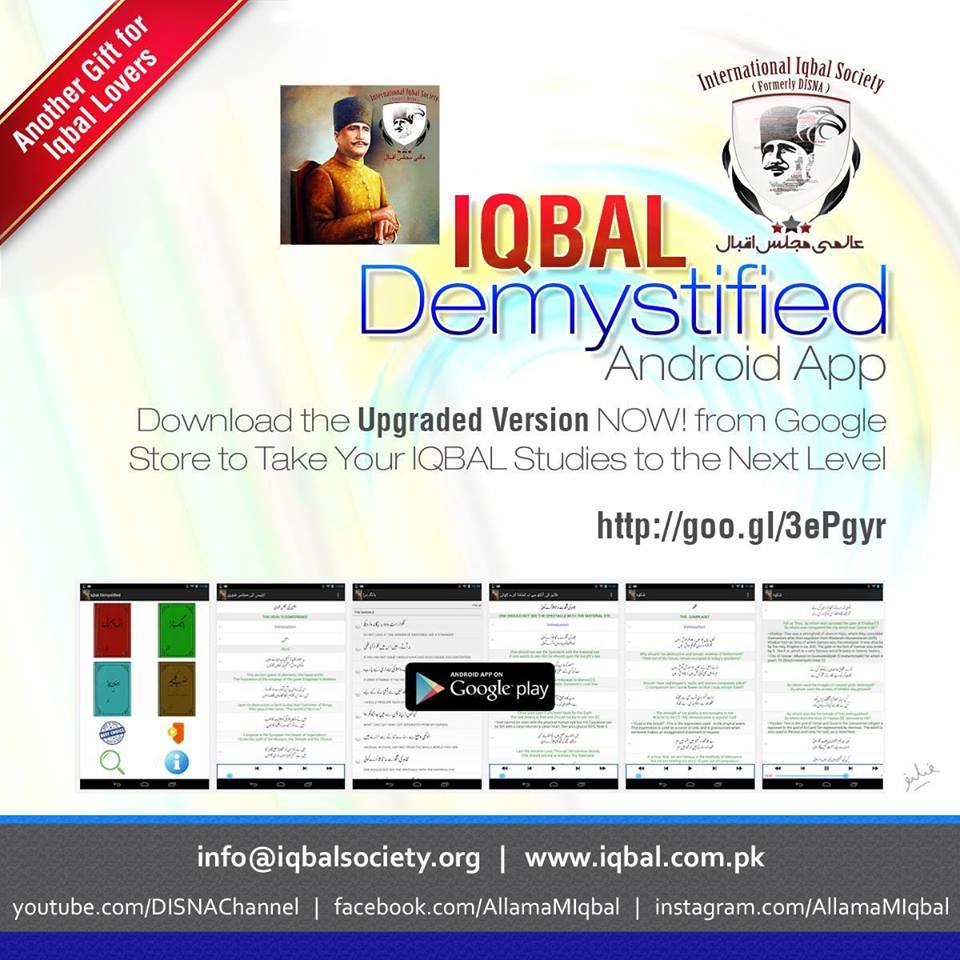HENRI BERGSON AND MUHAMMAD IQBAL
|
HENRI BERGSON AND MUHAMMAD IQBAL A. B. A. BAWHAB You must pardon my audacity in presuming to say anything of substance about the philosophies of Bergson and Iqbal or their mysticisms or indeed anything conclusive about even the bare essentials of their respective systems in such a brief space and time. It is, however, a particularly opportune time in which to speak about “irrationalism”, “intuitionism” and “emotionalism”, when the normative issues of the ordinary man have become so polarized that the language of stark “positivism” and “rational factualism” alone hardly make sense in any dialogue, and when the exigencies of moral situations are forcing re-integration of “facts” and “values”, and one hears more and more about such topics as: “The Enforcement of Morals”, “Law, Morality and Religion in a Secular Society” and “Freedom and Reason”.[i] The apparent signs of re-orientation of philosophical outlook generally along with the quest of: “An intelligible rationale for a transcendent alternative to the secular reduction of reality”,[ii] Is one such manifestation of the concerns now engaging the philosophers and theologians alike? It is here argued that a philosophy concerned with the treatment of man’s complex-being cannot disregard successive dimensions of human adjustment: biological, psychological and ideal or transcendent. It is this comprehensive way of developing philosophy which aims at resolving man’s discord within himself and the polarity of his principles, laws and imperatives on the one hand and − to use Hegelian language: “Reaches out for divinity to see God, to enter God’s being and to link the objective and subjective experiences of God in the consummate experience of high philosophy”,[iii] On the other, that makes Bergson and Iqbal supremely relevant to the present. It is a remarkable coincidence that the two highly individual thinkers, separated by nationality, cultural back-ground, religious commitment and temperaments, evolved parallel systems which bear so many analogies that despite the divides of place and socio-political milieu their thoughts seem to lead into each other and create a sense of inter-relatedness. They reflect each other’s thoughts, and have all the affinities of a family − they are a family of a very long tradition. We recognise the similarities of their thoughts through the content of common themes and their common concerns, yet cannot fail to recognise their individualities. The present study seeks to identify be comparative exposition of only such common themes as are central to their respective systems. What is and is not central in their philosophies may well be a matter of opinion, but there can be no disagreement about one thing: that their message was a call to mobilise man-kind − to use Bishop Cragg’s expression − towards “Godward-liness”. It is new and relevant because it is expressed in the modern idiom, it is daring too in a sense, because it was expressed at a time which can rightly be regarded as “the high noon” of materialism, when the mere mention of God was no less than a “Polynesian taboo.” What is intended here is fairly simple and moderately ambitious, in that it is neither evaluative, nor contrastive, nor yet an advocacy of one against the other − but rather an attempt to juxtapose the two equally influential metaphysicians of this century, who attempted to see the reality from two different angles and claimed to have reached the same conclusion. Of course they have different ways of expressing the nature of their respective experiences, but the idiom they use is free from linguistic limitations. They transcended the barriers of linguistic formalities, which do no more than impose limitations on human thought. By subjugating intellect to intuition, they inform us of the possibilities of human reach. It is only by complete abandonment of logico-lingual framework, that we begin to appreciate the validity of their otherwise irrational, irreconcilable and non-experiential formulations, and only then every thing they say makes sense. Their talk of “evolution”, ascent of man Me’raaj, freedom and will, compatibility of human Ego with the Divine Will − all fall into a pattern. Their’s is the philosophy of “intuition” and “instinct”, of “vital-impetus” and “gnostic impulse”. A chapter in the large book of mysticism, Al-Kitab-al-Hikma-al Khalida − the philosophae perennis. In fact, without being offensive to partisan feelings, we can say santa-Dharma − a term used by Syyed Hossain Nasr to express the universality of all such traditions. In his introduction to the “Essential Writings of Hegel”, Professor Frederick G. Weiss wrote: “His philosophy itself is a spiritual bath, a baptism which ravishes everything in its path, and leaves nothing on earth or in heavens untouched.”[iv] I think we can very well say the same about the philosophies of Bergson and Iqbal. For, after all, in some qualified sense at least, these men were no less “God intoxicated” than Hegel himself, who said: “Philosophy has the last word on what is; and though it speaks a different language than art and religion, it relates the same message and describes the same content. That content is Truth, in that supreme sense in which God and God only is the Truth.”[v] Without classifying as such, we name them “irrationalists”, which is not, however, an imputation of stigma in general terms. For such ascriptions need be applied with more caution and reservations in case of Iqbal and Bergson: It is perhaps due to the lack of any appropriate alternative that they are so labelled; but the fact is that their commitment to “irrationalism” is neither full-blooded “anti-rationalism” nor is it “anti-Scientism”, although critical of “intellectualism”, they never lost sympathy for intellect as such, and fervently leaning towards” “pure-mysticism”, or more precisely, expounding their own brand of mysticism, and occasionally flirting in the twilight zones of “esotericism” and “romanticism”, they claimed superiority of intuition over the intellect. It is the variety of their antagonisms that betrays their multifaceted propensities; but their positive doctrines remained essentially “evaluative’. Iqbal’s main work The Secrets of the Self and the Mysteries of the Un-self, undeniably a master-piece in its class and the quintessence of his philosophical thought, is built up around the Quranic normative framework, in which Iqbal provides hermeneutical framework by allusion to various key concepts as well as an exegesis of such Quranic themes as are foundational to the training of khalifat-ullah − divinely created agency in the universe. The prophet’s person is a paradigm of the best make of em-bodied manhood Ahsana Taqweem and exemplar par excellence − swatal Hasana. Hence he seeks the closest proximity to the - person of the prophet by imitative adherence to the prophet’s way and discovers the possibilities of emulation. It is the unfolding of this secret, discovered by him, that makes up his “philosophy of the self”. Likewise, Bergson’s the two Sources of Morality and Religion, a classic work on most delicate yet most neglected concerns of human life, is an exposition, in a most lucid style, of his socio-philosophical thought, in which he provides an account of his deep concern for humanity, and unlike Albert Schweitzer’s “Reverence for Life”, breaks the confines of sectarian framework. For Iqbal “freedom of Ego” is imperfect in proportion to its proximity to the most free, i.e. God. “He who comes nearest to God” says Iqbal, “is the completest person.” By mastering the world of matter, the Ego absorbs God, not the other way round. “All life is individual; God himself is an individual “It is at this juncture that Iqbal parts company with Ibn ‘Arabi, as with Berg-son. For Bergson communion with Reality is impossibility, for the “vital impetus” is free from anticipations, predictions and destiny. Iqbal equates his experiences with the higher form of consciousness, which in the case of prophets is Wahy; but he uses the word free from theological connotations. This experience is avail-able to every being, but its best expression is found only in the human being. An innate potential, with an urge to express itself, is always in the state of tension to prevail over the forces of obstruction − in Bergsonian framework this would be termed as the upsurge of the free will of the soul, faced with the downward pull by the matter. A similar dichotomous theme runs through Iqbal’s dialectical formulations: Khair virtue opposed by Sharr vice. Iqbal admits of the potential of human intellect but would not rely on its unguided explorations, which led many a seeker astray. Although Iqbal disagreed with Bradley in many ways, Bradley’s trained instinct is no different than Iqbal’s disciplined Ego. “Metaphysics” said Bradley” is simply a matter of finding bad reasons for what we believe upon instinct; but finding those reasons is no less an instinct.” Iqbal would say: “Approach the chosen one; for he is the Way, Should you fail in this, you will only be groping in dark! (Translation)
‘For Bergson, the “vital impetus” does not require training or guidance. It is purely instinctive and expresses itself when faced by the urges. For example, as Bertrand Russel understood it: “a vague desire in sightless animals to be able to be aware of objects before they came in contact with them, led to efforts which finally created eyes.”[vi] So, once the desire grows and intensifies, it finds ways of satisfying itself. But, how a particular desire emanates and in what direction it is to be guided is no concern of Bergson. Iqbal found this answer in the “Endowed-guidance”. Seen in this way, guidance (Hidayah) is not `”restraining-normative”, but rather a means of actualising the possibilities −not a burden of obligations rather the means of survival. To exploit these means is no credit to man, because they are there; to ignore them is a misfortune, a discredit and Jahl (ignorance). It is this awareness that humbles man, even at the highest level of his career - a theme not so unfamiliar in other traditions. In Job: (40:2), for instance we read: “Is it for a man, who disputes with the Almighty to be stub-born? Should he that argues with God answers back?” So, when Kierkegaard came to expound a believer’s existentialism, he exploited this theme to the fullest: and repeatedly re-minded himself of:
“Edification implied in the thought that as against God we are always in the wrong.”[vii] For Iqbal “Evolution” is a far more structured activity than a mere notion of haphazard growth, as it seemed to the “Darwinian-evolutionists”, the evolutionists’ account, he felt, may well have adequately captured the way in which the origin of species is traced, but surely it had missed the teleological point of explaining this activity. He would affirm the Spencerian account insofar as it bears out the historicity of “Social − Darwinism”, but found no account more appealing or satisfactory than Rumi’s; as he put it: “Rumi’s tremendous enthusiasm for the biological future of man.” For Bergson, living is a primordial function, and life as such a process, an undivided cosmic movement of which we are “expressions” rather than “parts”. The elan vital or the vital impetus is the prime mover and has ascendancy over mind and matter. Bergson’s philosophy has too many novel doctrines to be characterized by any one in particular; it has been described by some as the “poetry of time”. Iqbal’s is unmistakably the ex-position of Self/Ego. Their respective systems afford alternatives to Newtonian mechanical world view: in the case of Bergson elan vital, and anti-Hegelian Wiltanschauung in the case of Iqbal. They both seek to explain “evolution”, and “creation”. For Bergson creative impulse is free from foresight and unpredictable. In Bergsonian system there is no room for teleological explication of “universe”. Iqbal would not go so far as to refute every argument for purposefulness. He would divide the perspective into long-term and short-term objects. Creation, for Iqbal, is a mere expression of Divine scheme, which is in the process of perpetual un-folding. Universe is not therefore a completed product. It is growing. It is purposive only insofar as it is selective in character. Man is not helpless in this scheme. He plays a role in moulding the course of creative energy to his own benefit. Fate and destiny are the knowledge of possibilities preserved in the Divine Memory. The following passage from “Revelation of Religious Experience” sums up Iqbal’s teleology: “…To endow the world process with purpose …is to rob it of its originality and its creative character. Its ends are terminations of a career; they are ends to come and not necessarily predetermined. A time process cannot be conceived as a line already drawn. It is a line in the drawing, an actualisation of open possibilities… nothing is more alien to the Quranic outlook than the idea that the universe is the temporal working-out of a preconceived plan.”[viii] Of course in this, as in all other cases, having preferred his conceptualized formulations, Iqbal presents the authority of Qur’an. If this be Qur’anic, one might be tempted to ask, what then is original in Iqbal? To this it must be replied, that the intuitive apprehension of the revealed truths is itself revelatory, and revelation is the only thing original there is. Bergson and Iqbal were contemporaries, although Bergson was born before and died after Iqbal. Bergson lived long enough to see the rise and fall of his irrationalism as tried by Sorel and Mussolini. Iqbal on the other hand died too soon to see his dream come true. They both came from migrant families: Bergson from Polish and Iqbal from Kashmiri. Bergson, though French by birth, was of Anglo-Polish descent; his mother was an English lady. Iqbal descended from a Kashmiri Brahmin stock. Bergson started his career as a diplomat, but later became an academic and remained so till the end. Iqbal started as an academic but later took to the legal profession and spent most of his life in retirement, writing poetry and campaigning against colonialism. Bergson was a winner of Nobel Prize. Bergson wrote in French and occasionally lectured in English. Iqbal wrote and lectured both in English and in Urdu and was equally at ease with the Arabic, Persian, Sanskirt and German. Punjabi came as an unwanted legacy and Hindi as an extra bonus. They both came from orthodox religious families, Jewish and Muslim. Bergson preached morality without naming religion, and Iqbal preached religious morality. They are both equally widely translated writers of this century; although Bergson’s works in Oriental languages are a rarity, yet thanks to the universality of English language, Bergson is accessible throughout the world. Some of Bergson’s translations, particularly the “Two Sources of Morality”, were approved by Bergson himself. The only work of Iqbal translated into English during his life-time: “The Secrets of the Self,” which was published with Iqbal’s own interpretation of the philosophy of the “Self”, came out rather in haste, and reflects all that goes with haste in matters of delicate exactitude: Although they were both averse to the appellation Platonist, the perennial pietism disclosed by their systems has much in common with the philosophy of forms and ideas, rather than with Aristotelian “Tabula Rasa” or in plain English empty-headedness. Besides, we cannot deny the profundity of Professor J. A. Notopoulos’s statement: “It is perfectly possible to be a Platonist without knowing it, just as it is possible to think oneself a Platonist without actually being one. ‘[ix] Of course one does not immediately associate these men with Platonism, but their epistemological quest to extend the range of human knowledge beyond reasoning and phenomena is essentially opposed to empiricism and sensationalism, and aligns them with Plato. Their conviction that reality lay beneath the surface and that the eternal mysteries were to be grasped by intuition only, undeniably bear the Platonic stamp, however faint it may be. But they reduced these notions to an existential level by turning them into practical reason or regulative truths. Iqbal learned this technique from Rumi, who taught him:
Knowledge in pursuit of lower desires is (destructive) like a snake Knowledge in pursuit of higher desires is a worthy gain. (My translation)
As the brief time graciously allocated to me comes to an end, I am constrained to exclaim, with the `Sheikh’, in ecstasy: Should I transgress by a hair’s breadth, I will have my wings burnt to ashes! (my translation)[x]
Notes and Reference [i] i. Patrick (Lord) Devlin: The Enforcement of Morals, Oxford University Press, 1965. ii. Basil Mitchell: Law, Morality and Religion, Oxford University Press, 1970. iii. R. M. Hare. Freedom and Reason. Oxford University Press, 1978. [ii] Carl F. H. Henry: The New Consciousness, Christianity Today, October 8, 1971. [iii] Frederick G. Weiss: Hegel: The Essential Writings, Harper & Row, 1974. [iv] ِIbid. [v] Ibid. [vi] Kulliyat-e-Iqbal (Urdu), p. 421. [vii] Bertrand Russell: “History of Western Philosophy”, Unwin University Books, 1975. [viii] Soren Kierkegaard (Translated: Walter Lowrie) “Either/Or 11”, Princeton University Press, 1974. [ix] Muhammad Iqbal: “The Reconstruction of Religious Thought in Islam”, Sh. M. Ashraf, Lahore, 1975. [x] Quoted by David Newsome: “Two Classes of Men: Patonisin and English Romantic Thought”, John Murray, 1974.
|
